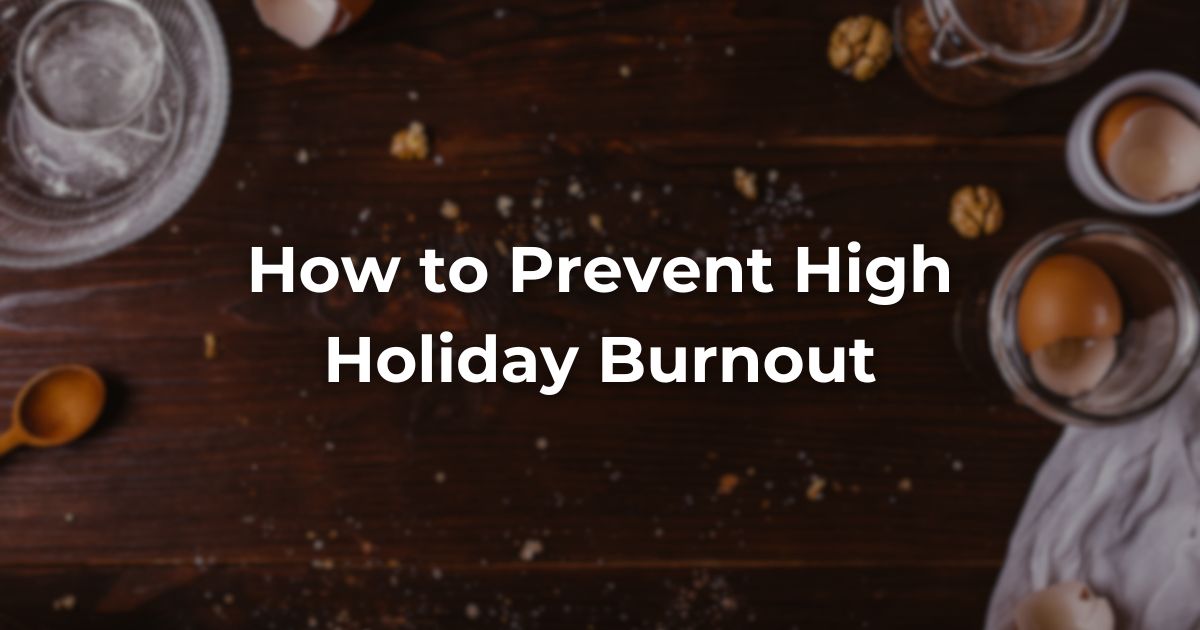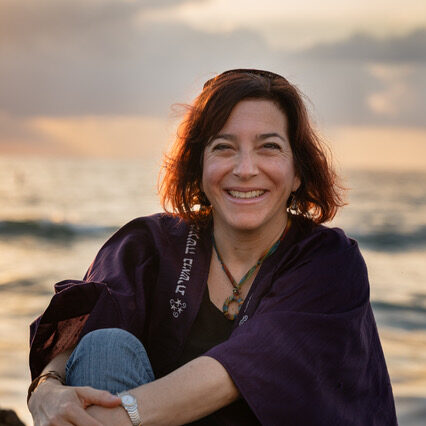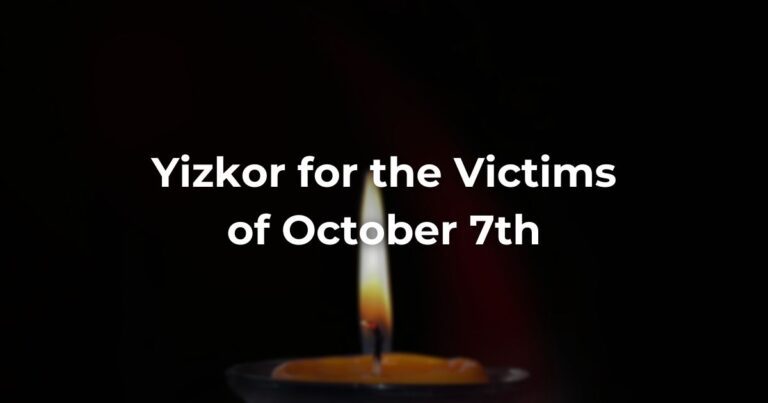This piece is part of Exploring Judaism’s 5785 High Holiday Reader. Download the whole reader here.
How does hearing a list of the fall holidays: Rosh Hashanah, Yom Kippur, Sukkot, Shemini Atzeret, Simchat TorahRefers to the first five books of the Hebrew Bible, the Tanakh, also called the Five Books of Moses, Pentateuch or the Hebrew equivalent, Humash. This is also called the Written Torah. The term may also refer to teachings that expound on Jewish tradition. Read more make you feel?
For some, images and tastes abound—round challot, apples dipped in honey, introspection, sukkot, delicious meals, dancing, and joy. For others, thoughts turn to many days in synagogue, fasting, eating outside in extreme weather, too much cooking, eating, and hosting.
For many of us, though, our thoughts and feelings fall somewhere in between.
The delicate balancing act of celebrating and observing the Tishrei festivals can be mixed with a bit of overwhelm, some of which might include: rearranging work schedules, planning meals, shopping for lengthy grocery lists, reflecting on the past year, and picturing the unfolding of the new year.
There does not seem to be a shortage of physical, emotional, mental, and spiritual preparation in observing these fall festivals.
When this kind of overwhelm occurs, many of us respond in two distinct ways: overdrive or paralysis. Either we drive ourselves (and probably others!) crazy with list-making, errand-running, project-stressing or we do nothing because we don’t even know where to begin. After preparing for the High Holidays for over thirty years, I’d like to offer some of my lived suggestions in order to help avoid High Holiday burnout:
1) First and foremost, check the calendar and plan ahead.
If you need to take days off from work, put your requests in as soon as possible. If you’d like to attend synagogue, now is the time to get your tickets. While waiting until the last minute to schedule is possible, it will also be more stressful. You can download a calendar from ExploringJudaism.org. And remember that Jewish holidays begin the evening before the dates listed.
2) Pace yourself and share responsibilities
To enjoy the fullness of the Tishrei holidays, be sure to pace yourself and share responsibilities.
If you have a significant other in your life, communicate beforehand, deciding how tasks will be divided. Create a game plan and ensure you are both on the same page. If you have children, enlist their help (They can make sukkah decorations, clean their rooms, create New Year’s cards to send, etc.)
If you are single, connect to your community to see how you can receive support to sweeten your celebrations. Remember, it’s okay to ask for help—maybe your meals can be potlucks, or a colleague can help cover a work project during your time away from the office.
3) K.I.S.S.—Keep it Sweet and Simple and set realistic expectations
If you want to gather with family or friends, decide who is hosting and divide up meals so that not all the entertaining is on you. Minimize food options—no, you don’t need Aunt Shelia’s favorite kugel, Uncle Bobby’s best apple cake, Cousin Dotty’s carrot tzimmes, and ten other choices.
Remember that your freezer can be your best friend. Cook, bake, and then freeze as much as you can in advance.
It’s human nature to envision how we want life to unfold, but sometimes, in our desires and anticipations, we get upset or disappointed. Set realistic expectations. Wishing for children to be perfectly behaved, the rabbi’s sermons to all be phenomenal, no differences of opinions expressed amongst your guests, perfect weather… you get the drift.
Life is messy, and people are unpredictable, so extend grace and compassion to others and yourself. By doing this, your holiday observances will likely be smoother, and you will be more relaxed.
4) Be present and take time out to recharge-create alone time
It’s easy to get caught up in all the “to-do’s” during this hectic time of year. Wanting to check items off our list, we lean into our human do-ing nature instead of our human be-ing presence.
When we feel overwhelmed, we often forget to pause and give thanks. Being thankful is important, dare I say, crucial to living a meaningful, happy life. With this spaciousness of gratitude, you will be better able to notice the many blessings you already have in your life: work, family, friends, housing, food, love, etc…
In addition to pausing, if you can take some time alone (in nature or by doing what brings you joy) to recharge, you will soon find that your own well will be replenished with patience, gratitude, and compassion.
5) You don’t have to do it all; give yourself grace
There may be a desire or even some guilt pushing you to attend every service, recite every prayer, listen to every sermon, eat every meal in the sukkah, and dance every hakafah. This can be a recipe for disaster.
Rather, spend time discovering what fills your soul with the most meaning. Allow yourself the idea of exploring one aspect of the liturgy, learning one new niggun (wordless melody), or tending to a cheshbon hanefesh (a review of your deeds over the past year). When we permit ourselves to focus on a specific area (or two), we allow ourselves not to have to do it all.
Granting ourselves grace allows us to connect more fully with the flow of life and the Blessed Holy One. Once connected to this life force, you may more easily nourish your spirit and fill your holidays with calm, meaning, and fulfillment.
Wishing you an inspiring, enjoyable holiday season—free from burnout and full of joy.
Author
-

Amy Grossblatt Pessah is a rabbi, author, spiritual director and mom. Serving various communities and demographics across the country, Amy has been a Jewish educator for over thirty years with a specialization in Jewish Family Education. She received her MAJE from HUC-JIR and her semicha from Aleph: Alliance for Jewish Renewal. Amy’s writings can be found online and in various anthologies. Her first book, Parenting on a Prayer: Ancient Jewish Secrets for Raising Modern Children was published in 2020. She currently lives in Florida with her husband and together they are the proud parents of three young adults.
View all posts https://www.benyehudapress.com/books/parenting-on-a-prayer/





